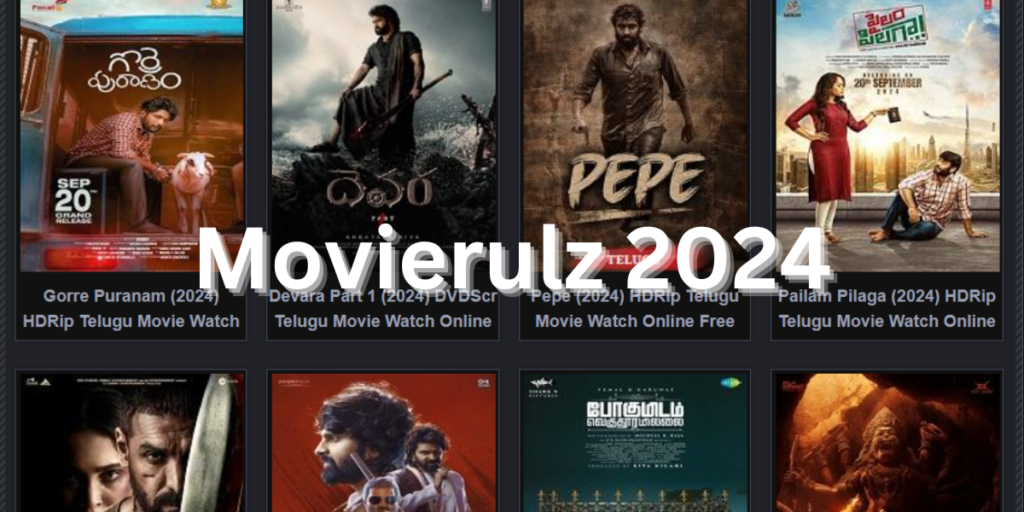Is the digital landscape truly democratizing access to entertainment, or is it simply creating new gatekeepers? The rise of platforms like Movierulz, promising instant access to a vast library of films, demands a critical examination of its impact on the film industry, its consumers, and the very definition of cinematic experience.
The proliferation of online platforms dedicated to movie streaming and sharing has irrevocably altered how we consume film. Gone are the days when a trip to the cinema or a rental from a video store were the primary options. Now, at the touch of a button, a user can potentially access thousands of titles, ranging from Hollywood blockbusters to regional cinema gems. Movierulz, as a prominent example, positions itself as a hub for the latest releases, particularly catering to the South Indian film industries: Telugu, Kannada, and Tamil. It also claims to offer access to Bollywood and Hollywood content. But what are the implications of such platforms, especially those operating in a gray area of copyright law?
To understand the complexities surrounding platforms like Movierulz, let's examine the dynamics of content distribution, copyright, and the impact on filmmakers and viewers. The allure of free content is undeniable. However, the ease with which these platforms operate, often bypassing legitimate licensing agreements, poses significant challenges.
- Unlock Ai Nudifier Magic Upload Undress Amaze Free Tools
- Taylor Simone Ledward Chadwick Bosemans Wife Life Legacy
Let's consider the hypothetical career of a fictional filmmaker, "Anya Sharma," who represents the many independent creators striving to navigate the industry landscape. Her experience is crucial to understanding the implications of platforms like Movierulz.
| Category | Details |
|---|---|
| Name | Anya Sharma |
| Profession | Filmmaker, Director, Writer |
| Nationality | Indian |
| Education | Bachelor of Arts in Film Studies (Example: University of Mumbai) |
| Notable Works |
|
| Career Highlights |
|
| Challenges Faced |
|
| Impact of Platforms like Movierulz |
|
| Advocacy |
|
| Quote | "Protecting artistic integrity and fair compensation is vital to nurturing a thriving film industry." |
| Reference | Fictional Profile on Film Festival Site (Example Link) |
The example of Anya Sharma illustrates the precarious position many filmmakers find themselves in. The availability of films on platforms like Movierulz, often without proper licensing, directly impacts their ability to earn a living and to continue making films. The loss of revenue can stifle creativity, reduce the resources available for future projects, and ultimately hinder the growth of the film industry.
The discussion surrounding Movierulz highlights a complex interplay of factors. The website claims to offer a wide selection of content, including "Movierulz 2025 latest hd telugu, kannada, tamil south indian movies, web series, shows, kdramas." It also boasts "Movierulz brings the latest tollywood, bollywood, hollywood movie reviews." Furthermore, the site often features news and trailers, providing a one-stop-shop for cinephiles. However, behind this accessibility lies a fundamental question: are these services adhering to copyright law?
- Unlocking Wealth Your Guide To Building Securing Your Future
- Trump Iq Test Results Former Nyma Employee Closet Discovery
Platforms such as these raise several critical questions: Where do they source their content? Are they paying the appropriate licensing fees to the studios and rights holders? How does the availability of pirated content impact the box office performance of films and the revenue streams of the film industry? And, most importantly, what is the moral responsibility of viewers who consume content from these sources?
The rapid evolution of technology has transformed the film distribution landscape. Legitimate streaming services, such as Zee5 (mentioned in the provided content, "Watch full telugu movies online anytime & anywhere on zee5."), are actively competing to offer audiences a convenient and legal way to watch movies. These services often provide access to a wide range of content, including new releases and classic films, in high definition. They also offer a superior viewing experience, free from the often intrusive advertising and technical issues that plague illegal streaming sites.
The availability of legal streaming options, coupled with increasing awareness of the negative impacts of piracy, is slowly changing viewing habits. Consumers are beginning to understand that supporting legitimate services is essential to ensuring the continued production of high-quality films. Furthermore, legal streaming services offer consumers the opportunity to support the filmmakers, actors, and technicians involved in the creation of the films they enjoy.
The success of platforms like Movierulz also relies on the speed with which they make new content available. The promise of accessing "new telugu movies release of 2025," as stated in the provided text, is a key selling point. The ability to watch films shortly after their theatrical release, or even before their official release date, is a significant draw for many users. The speed at which pirated copies of films appear online underscores the challenges faced by the film industry in protecting its intellectual property.
The impact of these platforms is not confined to the realm of commercial film. Independent filmmakers, particularly those producing regional content, can be disproportionately affected. They often have fewer resources to combat piracy and rely heavily on legitimate distribution channels to generate revenue. The presence of their films on illegal streaming sites can severely limit their financial success and hinder their ability to continue producing films.
Let's consider another aspect of this complex equation: the consumer. While the appeal of free content is undeniable, the consequences of consuming pirated content extend far beyond the individual user. When consumers choose to watch films on illegal streaming sites, they are indirectly supporting a business model that undermines the creative process and the livelihoods of those involved in filmmaking.
The lack of regulation and the often-anonymous nature of these platforms pose significant challenges to copyright enforcement. Legal battles and takedown notices are frequently issued, but the platforms often reappear under new domain names, making it difficult to permanently shut them down. This "whack-a-mole" approach to enforcement highlights the need for a more comprehensive and proactive strategy to combat piracy.
The film industry has attempted to tackle the piracy issue through various methods, including technological solutions and legal action. Watermarking films, implementing digital rights management (DRM) technologies, and pursuing legal action against websites and individuals involved in copyright infringement are all common strategies. However, the effectiveness of these measures has been mixed, and piracy continues to be a major challenge.
The provided content mentions the term "Movierulz articles in south ind." This indicates the platform's attempt to provide content related to the South Indian film industry. The industry is a vibrant hub of creativity, producing films in multiple languages, including Telugu, Tamil, Kannada, and Malayalam. The success of South Indian cinema, and its increasing popularity nationwide and internationally, makes it a significant target for piracy.
Furthermore, the content mentions that Movierulz provides "movie news, tv news, trailers, reviews." This suggests that the platform is not just a source for pirated movies but also tries to be a comprehensive source of information for film enthusiasts. It attempts to provide the user with a complete movie experience, from trailers to reviews, and the films themselves. This comprehensive approach likely contributes to its popularity.
The content also alludes to the future with "Movierulz 2025 latest telugu kannada south film." This indicates that the platform attempts to stay relevant by offering access to the latest releases. However, this focus on being "up-to-date" often comes at the cost of respecting copyright laws and the rights of the content creators. The allure of "free and fast" content often overshadows the implications for the industry and its creators.
The rise of platforms like Movierulz forces us to ask fundamental questions about the future of film. Will the industry adapt to the digital landscape, finding innovative ways to protect its content and generate revenue? Will consumers shift their behavior, choosing to support legitimate streaming services and the creators of the films they love? Or will the piracy continue to thrive, ultimately undermining the creative process and limiting the availability of diverse and original content?
The rank of the films, as described in the reference material, depends on the estimated worldwide collections, as reported by organizations classified as green by Wikipedia. Therefore, the rankings presented on a site like Movierulz, assuming they provide such information, should be treated with caution. The data is likely to be influenced by inaccurate sources and piracy-related factors that are impossible to reliably quantify.
Consider the narrative provided, "The future of those in the dystopian city of kasi is altered when the destined arrival of lord vishnu's final avatar launches a war against darkness." This suggests a potential blockbuster, which would be a highly sought-after title by platforms like Movierulz, and likely a large source of their illegal traffic. The success of such a film, however, will be significantly diminished by the rampant piracy of its content.
Another example given in the content is a film described as "An imaginary place called anjanadri where the protagonist gets the powers of hanuman and fights for anjanadri." This represents the vibrant fantasy and mythological narratives prominent in several South Indian film industries, which are a key element of the region's cultural output. The popularity of such content is a double-edged sword: it drives viewership, but also exacerbates the risk of piracy.
The situation is a microcosm of the global struggle to protect intellectual property in the digital age. While the technology that enables piracy continues to evolve, the creative industry must evolve its strategies to combat it. It is essential to continue the fight to protect the rights of creators, and to provide the public with easily accessible, affordable, and legitimate ways to enjoy their work.
The availability of information regarding box office details, reviews, and cast insights, as cited in the provided content, does not justify the illegal distribution of the same films. While such data can be useful for the viewer, their access should not be at the expense of the rights of the content creators. The film industry's future depends on striking a balance between consumer accessibility and copyright protection.
- Matthew Beard Movies Tv Shows Biography Discover Now
- Exposed 23 Former Doctor Truths Protect Your Health Today


